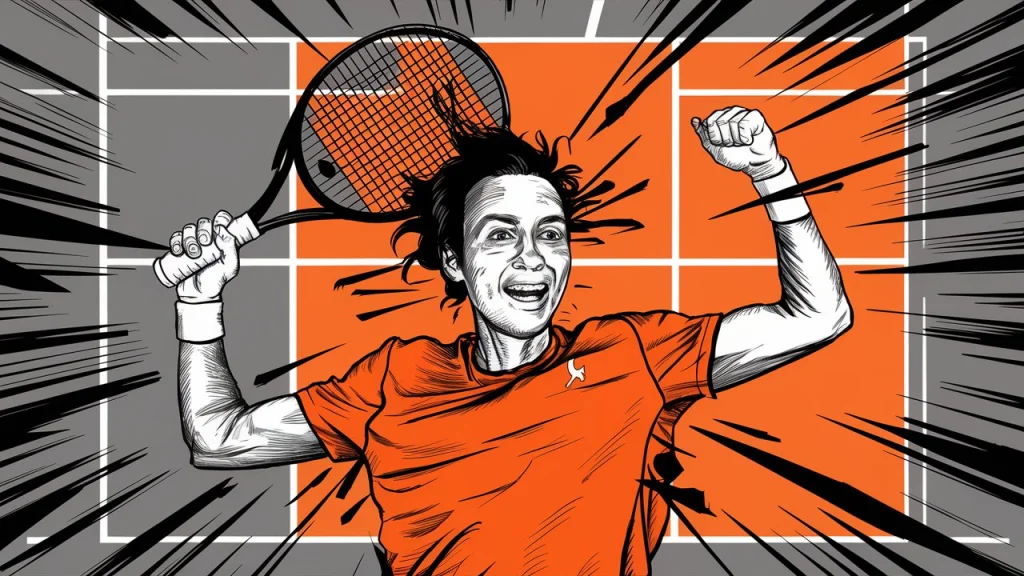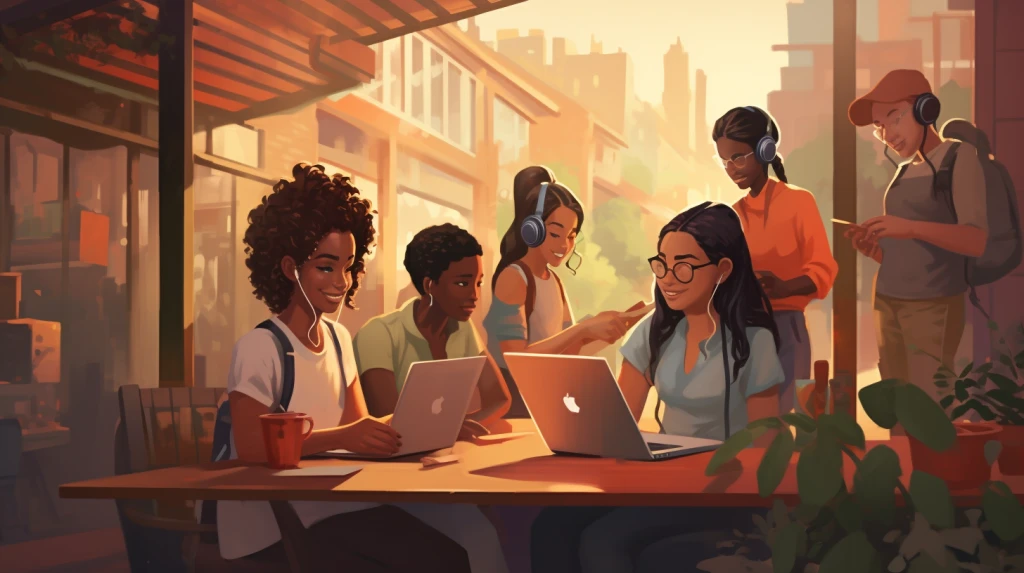by Fiona Reynolds
In the world of professional tennis, Carlos Alcaraz has become a phenomenon, not just for his incredible skill on the court, but for his mental fortitude and joy when facing challenges. Alcaraz’s recent victory at the French Open showcased a blend of Viking-like determination and unbridled enthusiasm for his craft. This combination is a powerful recipe for success, not just in sports but also in education. Like Alcaraz, our students are on a journey of self-discovery, seeking to excel while confronting their limitations.
The parallels between elite athletes and high-achieving students are striking. I once taught a table tennis world-class athlete who approached academic tasks with the same precision and drive they applied to their sport. This student meticulously analyzed rubrics, aiming not just to meet expectations, but to exceed them at every turn. They reminded me that the pursuit of excellence is a holistic endeavor that can be transferred beyond the confines of any single discipline.
Central to this pursuit is the role of mental preparation. For top athletes, sessions with sports psychologists are as crucial as physical training. The same principle applies to education. We must foster environments where students believe in their ability to succeed, even when faced with daunting challenges. The question “Do you believe you can win?” translates in academic settings to “Do you believe you can learn, grow, and overcome obstacles?”
This mindset – the belief that one is capable and sufficient – is fundamental to learning. It’s not about winning or losing in the traditional sense, but about developing the resilience to persevere. When students face real-world problems and apply their knowledge and skills, they build the grit necessary to navigate life’s complexities.
However, here’s where we encounter a significant disconnect in our educational system. While we recognize the importance of these life skills and mental attitudes, our current assessment methods don’t value this. Grades, while useful, cannot fully capture the development of a resilient mindset or the joy of learning. Conventional approaches often fail to capture the true essence of learning and growth, much like judging a tennis player’s career based on a single match or game.
Traditional grading systems typically assess students at fixed points in time, providing a snapshot of their understanding or performance at that moment. While this approach may seem objective and straightforward, it has several critical flaws:
Neglecting Growth: Point-in-time grading fails to acknowledge the progress a student has made over time. It doesn’t capture the struggles overcome or the persistence demonstrated in mastering a concept.
Discouraging Reflection: Once a grade is assigned, students often view that topic as “finished,” discouraging further reflection or deeper exploration of the subject matter.
Penalizing Late Blooming: Some students may grasp concepts more slowly initially but demonstrate profound understanding later. Traditional grading often penalizes these late bloomers, potentially dampening their enthusiasm for learning.
Promoting a Fixed Mindset: When students receive a low grade, they may internalize it as a judgment of their ability rather than a temporary assessment of their current understanding. This can reinforce a fixed mindset, contrary to the growth mindset we aim to cultivate.
Overlooking Real-World Application: Grades often focus on academic performance in controlled settings, failing to capture a student’s ability to apply knowledge in real-world scenarios – a crucial skill for future success.
Limiting Feedback: Letter grades or percentages provide limited actionable feedback for improvement, unlike the detailed, specific feedback a coach might give an athlete.
To address these shortcomings, we need to reimagine our assessment strategies and create alternatives that better align with our goal of fostering resilience and continuous growth:
Portfolio Assessments allow students to curate a body of work over time, demonstrating their progress and reflecting on their learning journey.Competency-Based Grading focuses on mastery of specific skills or concepts, allowing students to progress at their own pace and revisit areas for improvement.
Narrative Evaluations provide detailed, qualitative feedback that captures nuances of a student’s performance, effort, and growth.
Self-Assessment encourages students to reflect on their own learning, set goals, and evaluate their progress, fostering metacognition and self-awareness.
Project-Based Assessments evaluate students based on their ability to apply knowledge to complex, real-world problems over time.
Continuous Assessment allows for ongoing evaluation processes that allow students to demonstrate learning and understanding at multiple points throughout the year.
By adopting these alternative assessment methods, we can create an educational environment that truly values lifelong learning. While we may not be training the next tennis prodigy, we are shaping the minds that will solve tomorrow’s problems. By focusing on cultivating belief, resilience, and joy in learning, we can help our students achieve their own grand slams, whatever form they may take.



